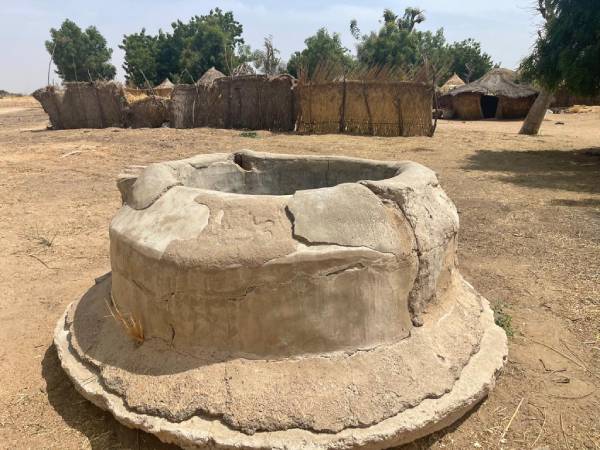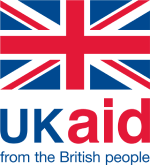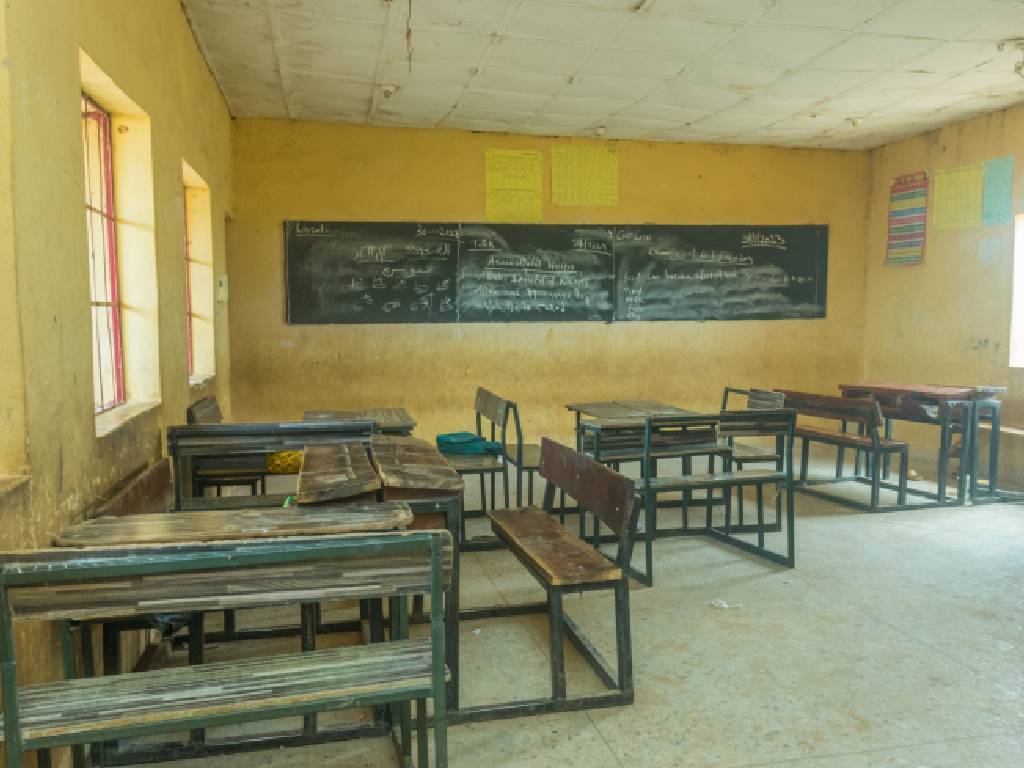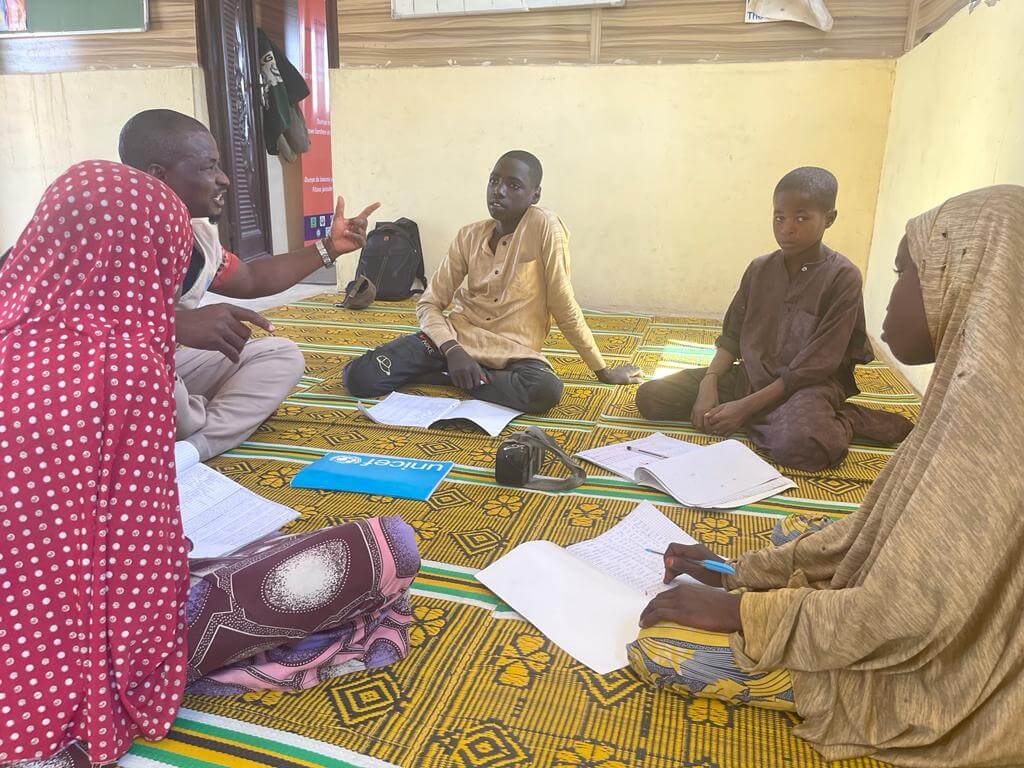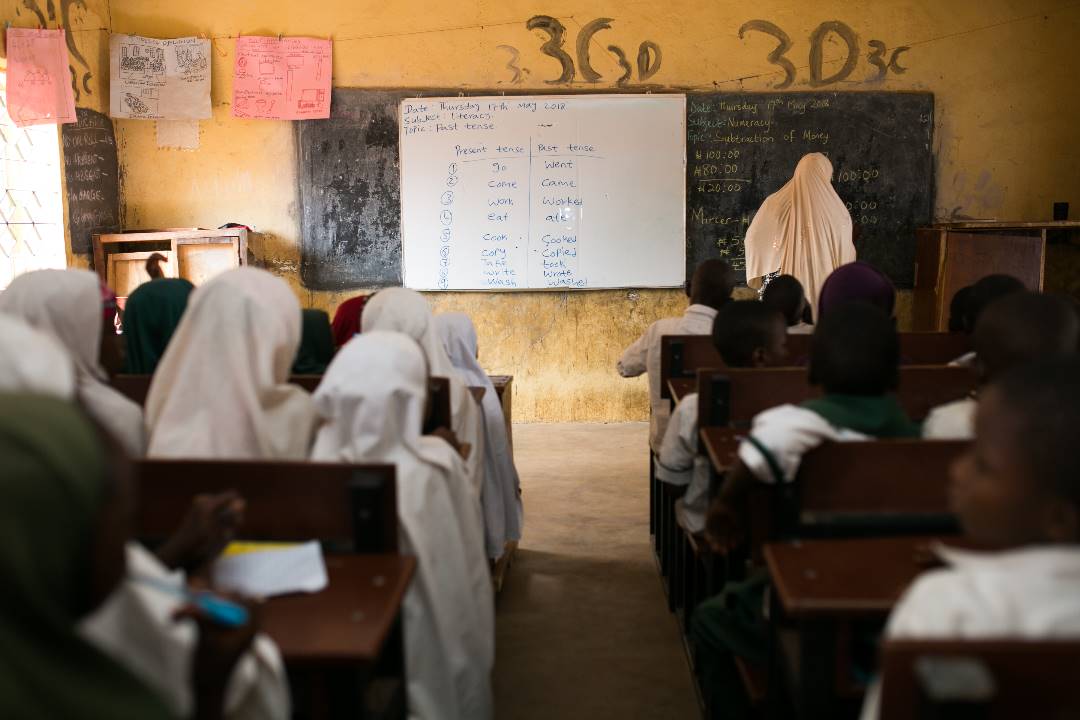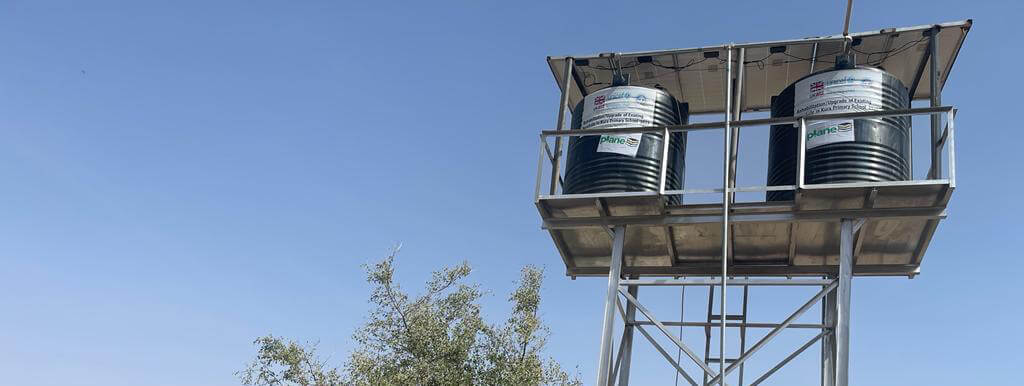
When Bulama Amande fled attacks from Non-state Armed Groups (NSAG) in Chabbal Kura, his community in north-east Nigeria to an internally displaced persons’ camp in 2019, his ancestral home and farmland were not the only favourite things he hurriedly left behind.
Amande who is the headmaster at Chabbal Kura Primary School, the only formal education centre in the community, was sad that the school would be indefinitely shut.
“I am not just the headmaster; I am an ex-student. I graduated from the school in 1980 after six years of my primary school education. Two people were killed when our community was attacked. We lived in the bush for two months before we found our way to the Chabbal Ngubdor IDP Camp. Some of us relocated to Maiduguri. We were displaced for two years and seven months before we returned in 2021,” said Amande.
After returning to Chabbal Kura, Amande worked with the state government to get the school reopened. However, perennial challenge of lack of potable water affected school enrolment and retention.
“The school was reopened in January this year, after more than three years. But it was common to see children leave their classrooms in search of water. This is after they must have even arrived late in school because they had to make an early morning trip to fetch water in a neighbouring community. We could not keep them in class and the situation affected learning activities,’’ he said.
To protect children from water-borne diseases and safeguard their learning process, UNICEF, with funding from the Partnership for Learning for All (PLANE) project of the Foreign, Commonwealth and Development Office (FCDO) fixed the moribund water source in the community and converted it into a solar borehole. Two large overhead storage tanks were supplied while the water was reticulated into the school and the only health centre in the community.
Every day, 1,000 children across 10 West and Central African countries die from drinking contaminated water. Many of these countries – Nigeria, Niger, Benin, Burkina Faso, Cameroon, Chad, Ivory Coast, Guinea, Mali, Somalia – face armed conflict and instability, a situation which has made providing the most disadvantaged children with access to basic water and sanitation services. source
Nigeria’s 2021 Water Sanitation and Hygiene National Outcome Routine Mapping (WASHNORM) report indicates thatonly 68 per cent of the population in Borno State have access to basic water supply service while 76 per cent of people living in the state drink water contaminated with the Escherichia coli bacteria. In Yobe State, while 72 per cent of the population have access to basic water supply service, 91 per cent of the population drink water contaminated with the Escherichia coli bacteria.
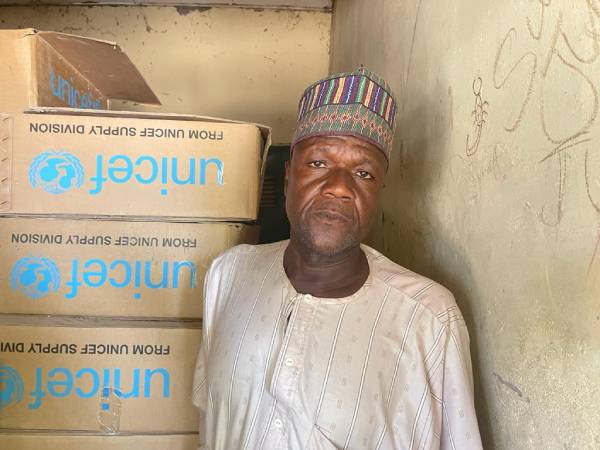
To protect children from water-borne diseases and safeguard their learning process, UNICEF, with funding from the Partnership for Learning for All (PLANE) project of the Foreign, Commonwealth and Development Office (FCDO) fixed the moribund water source in the community and converted it into a solar borehole. Two large overhead storage tanks were supplied while the water was reticulated into the school and the only health centre in the community.
Every day, 1,000 children across 10 West and Central African countries die from drinking contaminated water. Many of these countries – Nigeria, Niger, Benin, Burkina Faso, Cameroon, Chad, Ivory Coast, Guinea, Mali, Somalia – face armed conflict and instability, a situation which has made providing the most disadvantaged children with access to basic water and sanitation services. source
Nigeria’s 2021 Water Sanitation and Hygiene National Outcome Routine Mapping (WASHNORM) report indicates thatonly 68 per cent of the population in Borno State have access to basic water supply service while 76 per cent of people living in the state drink water contaminated with the Escherichia coli bacteria. In Yobe State, while 72 per cent of the population have access to basic water supply service, 91 per cent of the population drink water contaminated with the Escherichia coli bacteria.
With the repaired borehole and several fetching points around Chabbal Kura, children and families are protected from the bacteria and other diarrheal infections.
Amande said school attendance has also improved. Through the PLANE project, UNICEF has also provided children at the school with learning materials.
“We still have many challenges, but at least children who used to hawk on the streets are back to class. Within two months, enrolment increased from 300 to 500 children. We need more teachers, fence, and the renovation of our classrooms,’’ he said.
